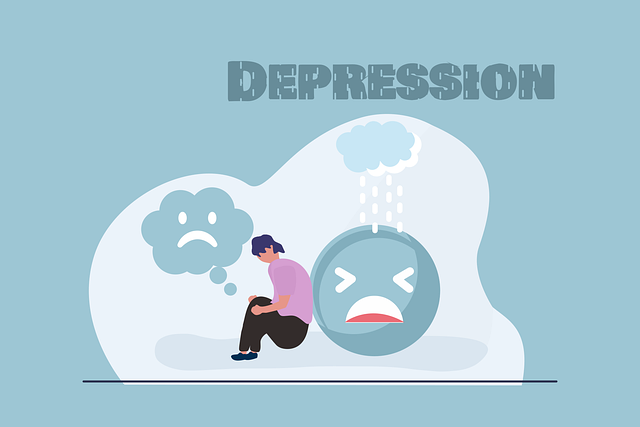Colorado Springs faces a mental health crisis with limited resources, leading to high stress among divorce therapy providers. To combat this, a comprehensive strategy is required, focusing on cultural sensitivity, policy advocacy for provider well-being, education on resilience, and peer support networks. This approach aims to prevent burnout, improve patient care, and transform the mental healthcare landscape in Colorado Springs, with a specific emphasis on enhancing services provided by therapists at Colorado Springs Divorce Therapy. The text highlights the importance of self-care, trauma support, and strategic interventions to create a resilient and supportive work environment for healthcare professionals.
In the fast-paced, demanding environment of healthcare, burnout among providers is a growing concern. This article explores strategies to combat this pervasive issue in Colorado Springs, focusing on understanding the unique challenges faced by local medical professionals and implementing effective prevention measures. We delve into the role of innovative approaches like divorce therapy as a potential solution for mitigating burnout, offering insights into creating healthier, more resilient healthcare communities in Colorado Springs.
- Understanding Burnout Among Healthcare Providers in Colorado Springs
- Implementing Effective Prevention Strategies
- The Role of Divorce Therapy in Burnout Mitigation
Understanding Burnout Among Healthcare Providers in Colorado Springs

In Colorado Springs, burnout among healthcare providers is a growing concern, particularly within the mental health sector. This vibrant city, known for its diverse population and stunning landscapes, faces unique challenges when it comes to provider well-being. The high demand for mental health services, coupled with limited resources, creates a demanding work environment. Many healthcare workers struggle with long hours, heavy caseloads, and often lack adequate support systems, leading to increased stress and potential burnout.
Addressing burnout in Colorado Springs requires a multifaceted approach. Incorporating cultural sensitivity in mental healthcare practice is essential, as it respects the diverse backgrounds of patients and ensures culturally competent care. Additionally, Mental Health Policy Analysis and Advocacy plays a crucial role in identifying systemic issues and advocating for policy changes that support provider well-being. Implementing well-designed Mental Health Education Programs can also equip healthcare professionals with resilience strategies to manage stress effectively. These initiatives, combined with effective peer support networks, can help prevent burnout and enhance the overall quality of mental healthcare in Colorado Springs.
Implementing Effective Prevention Strategies

In the quest to alleviate healthcare provider burnout, implementing effective prevention strategies is paramount. This involves a multifaceted approach that starts with fostering a culture of self-care. Healthcare professionals in Colorado Springs Divorce Therapy, for instance, can benefit from structured Self-Care Routine Development for Better Mental Health. Regular breaks, adequate sleep, and engaging in activities outside work—like hobbies or social interactions—are essential components to rejuvenate the mind and body.
Additionally, trauma support services play a crucial role in burnout prevention. Many healthcare providers carry emotional burdens from their work, and access to specialized therapy can offer Anxiety Relief. By prioritizing these aspects, healthcare organizations can create an environment that supports mental well-being, enhances job satisfaction, and ultimately improves patient care.
The Role of Divorce Therapy in Burnout Mitigation

In the demanding landscape of healthcare, burnout among providers is a growing concern, impacting patient care and overall well-being. This is where Colorado Springs Divorce Therapy steps in as a strategic ally in the fight against professional exhaustion. Beyond facilitating personal relationships, this therapy offers a unique perspective on stress management and emotional resilience—essential tools for healthcare workers. By addressing underlying issues that contribute to burnout, therapists provide a safe space for professionals to process their experiences and develop effective coping mechanisms.
Integrating therapeutic practices into risk management planning for mental health professionals is a proactive approach. Social skills training and healthcare provider cultural competency training can also be tailored to enhance interpersonal interactions and reduce the emotional strain associated with certain patient encounters. These interventions not only benefit individual practitioners but contribute to creating a more supportive and resilient healthcare environment, ultimately improving patient outcomes.
Burnout among healthcare providers is a pressing issue in Colorado Springs, but with the right strategies, it can be mitigated. By understanding the unique challenges faced by medical professionals in this region and implementing effective prevention tactics, such as promoting work-life balance and providing access to mental health resources, including Colorado Springs divorce therapy for stress-related issues, we can foster a healthier and more sustainable environment. These measures are essential to ensuring healthcare providers remain dedicated and engaged, ultimately improving patient care.









